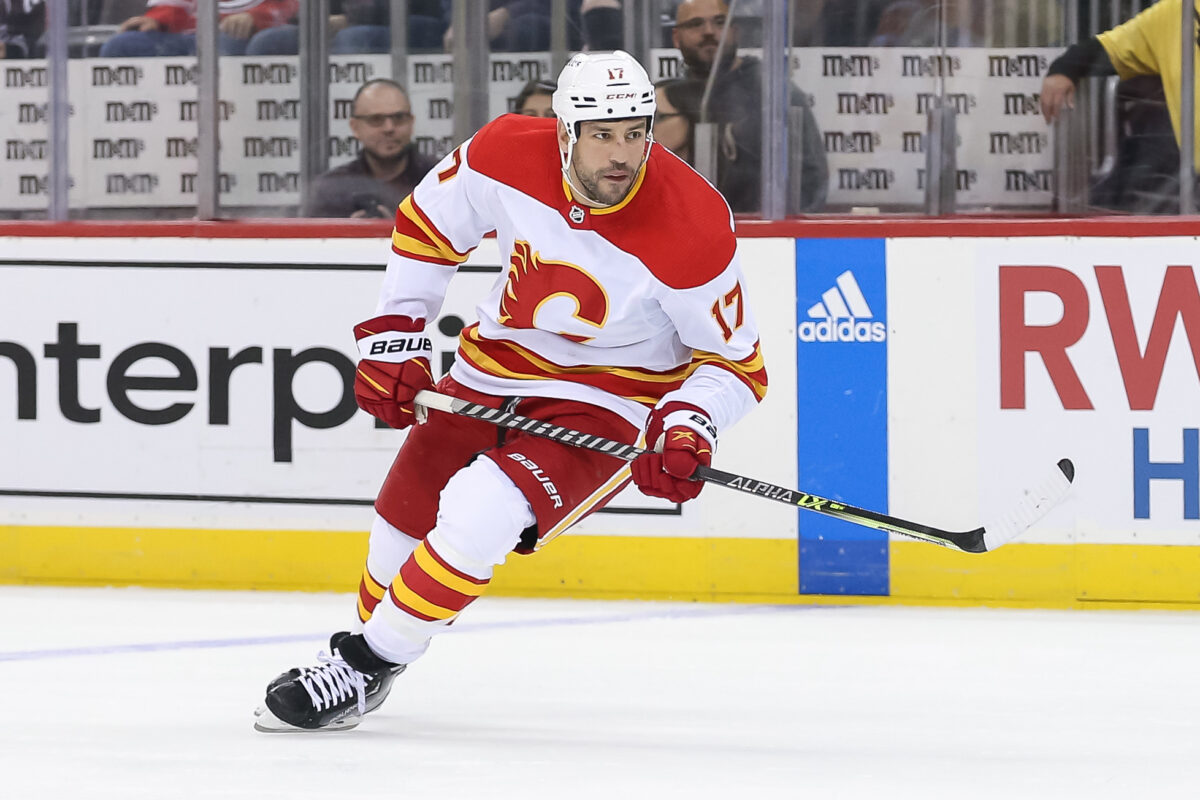Between periods of a recent NHL game, Kevin Bieksa mentioned that there was only one season during his entire career when he didn’t have a contract for the following year. While he didn’t describe it as “nerve-wracking,” he did highlight the many conversations he had with his wife about the potential need to move.
In other words, this situation of playing without a contract for the next season required preparation and created additional pressures and stresses away from the rink for Bieksa, particularly related to the potential relocation of his family. I have often thought of the possible nomadic life of an NHL hockey player, including his family; however, Bieksa’s comments brought the possibility home (no pun intended) and into a new light.
Specifically, the situation of not knowing where you will be playing the next season adds a certain amount of stress to one’s daily life. There were, as Bieksa noted, uncertainties and off-ice stresses associated with not having a contract for his next season.
William Nylander and Elias Pettersson Have Not Signed Extensions
Because I cover the Toronto Maple Leafs and also daily watch the Vancouver Canucks, I’m well aware of these situations. Both the Maple Leafs’ William Nylander and the Canucks’ Elias Pettersson are elite players who have not signed contract extensions, even though they are eligible to do so.
Related: Maple Leafs’ Nylander Growing More Professional
Latest THW Headlines
In this post, I want to consider the idea of contract extensions and weigh the pros and cons of signing or not signing one – both for specific players and for the team associated with those players. Signing a contract extension comes with its own set of pros and cons. In the same way, waiting to sign an extension and playing on an expiring NHL contract in the NHL also has pros and cons. Here I want to explore the advantages and disadvantages of each, as well as the potential stresses associated with these decisions:
Reasons For Signing a Contract Extension
Reason One for Signing a Contract Extension: Player Financial Security
One of the most significant benefits of signing a contract extension as soon as possible is the financial security that comes with it. Once it has been inked, players and their families can relax. They are assured they have guaranteed income for the duration of that contract. This financial stability provides peace of mind.
Reason Two for Signing a Contract Extension: The Player Gains a Long-Term Commitment
Contract extensions usually signify a team’s commitment to a player. It’s a human need to desire being wanted and belonging. Thus, signing an extension can boost a player’s confidence and morale. The player has proof in black and white that he is valued as essential to his team’s plans.
Reason Three for Signing a Contract Extension: Off-Ice Stresses Are Eased
Given the nature of the sport, a long-term hockey career can be iffy. Even for elite players, usually by the time they are 40 years old, their careers are finished. That brings the rest of life into focus, particularly without the guarantee of a regular payday.
An injury – especially one picked up during the season of an expiring contract – can spell big trouble. That was the case for Ethan Bear with the Canucks, who was injured playing international hockey with Team Canada. He was on an expiring contract at the time and currently isn’t earning a salary while his shoulder injury and subsequent surgery are being rehabbed.

What’s next for Bear is up in the air. For a hockey player, being up in the air is a tenuous feeling. He has to wonder if he’ll ever see another NHL hockey payday.
Related: Mike Bullard: The Penguin Who Wouldn’t Tank
In other words, financial worries can be significant stressors for players. Signing an extension eliminates the uncertainty of future earnings and allows a player to focus on his on-ice performance without financial distractions.
Reasons For Not Signing a Contract Extension
Reason One Against Signing a Contract Extension: There Are Salary Cap Implications
From a team’s perspective, there are reasons to allow players – particularly non-elite players – to play out their contract extensions. For the Maple Leafs, that was true last season for two regular players on the team – Michael Bunting and Alex Kerfoot. Both players were allowed to walk into free agency and signed healthy contracts with other teams because they became too pricy for Toronto’s more tenuous salary-cap structure.

A contract extension impacts a team’s salary cap space for the coming season. It might limit a team’s ability to sign or retain other key players. What if a player’s production crashes and burns after a contract extension is signed? The team remains on the hook for that salary, which has now (on the face of it) proven to be an overpayment.
Reason Two Against Signing a Contract Extension: Heightened Expectations for Player Performance
When a player signs a long-term contract extension, it comes with heightened expectations. Players who have signed significant extensions might face added pressure to perform at a high level throughout their contract.
For Edmonton Oilers fans, a recent example is the long-term contract that Milan Lucic signed (for seven years at a total of $42 million) in the 2016 offseason when he left the Los Angeles Kings to come to the Oilers. The Oilers wanted him to ride shotgun for their emerging superstar Connor McDavid. While expectations were high for Lucic to provide both physicality and offensive production to the Oilers, Lucic struggled.
Related: Calgary Flames Must Make Easy Choice & Move On From Lucic
During the 2017-18 season, Lucic scored only 10 goals and 24 assists (for a total of 34 points) in 82 games. That was far below both his past production and his anticipated production. The next season, he played even worse – 20 points in 79 games. He failed to live up to his lucrative contract; and, eventually, the Oilers had to add a third-round draft pick in the 2019 offseason to trade Lucic and his contract to the Calgary Flames in exchange for James Neal.

Even established and successful players can face difficulties adjusting to new teams or roles after signing long-term contract extensions. For teams, there’s a financial risk involved. For players, there can be a personal erosion to one’s reputation and status on the team he’s signed with.
Reasons For Waiting to Sign a Contract Extension
Reason One For Waiting to Sign a Contract Extension: A Possible Better Contract
Waiting to sign a contract extension allows players to fully explore their market value when they hit free agency after their current contract has expired. If they have a strong season, they might receive more lucrative offers from either their current team or from other franchises.
Earlier I mentioned the case of Bunting. After playing for the Maple Leafs for two seasons on a contract that paid him $950,000, as an unrestricted free agent (UFA) he signed a three-year contract with the Carolina Hurricanes with a salary of $4.5 million per season. While he’s no longer playing in his hometown, North Carolina is a beautiful place to live without many of the pressures that come with playing in a scrutinizing hockey market like Toronto.
Reason Two For Waiting to Sign a Contract Extension: Player Flexibility
NHL players who do not sign contract extensions can gain more flexibility in their choices about where to sign. They have the time and space to assess their own team’s performance, direction, and prospects. They can then make more informed decisions about their long-term commitment.
Related: Chloe Primerano Developing Into Team Canada’s Next Star
For example, last season the Maple Leafs brought in two players at the trade deadline they probably would have liked to keep – Luke Schenn and Ryan O’Reilly. Both decided, for a myriad of reasons it seems, to move to the Nashville Predators in the offseason. One reason that was rumored for O’Reilly was the added pressure of playing in the Toronto market. For Schenn, it was likely that his salary almost tripled.
Reasons Against Waiting to Sign a Contract Extension
Reason One Against Waiting to Sign a Contract Extension: Player Uncertainty
The biggest drawback of waiting to sign a contract extension is the uncertainty it brings. As noted earlier, until a contract is signed, players do not have guaranteed income for the upcoming season. This uncertainty can be stressful for both players and their families.
Two really crucial factors might ensue for players. First, is the risk of injury. Second, is the message they fear might be sent to their current team.

Players who wait to sign are always exposed to an on-ice risk of injury. A significant injury before securing a contract can have a detrimental impact on future earnings and career prospects. Second, by delaying negotiations, players might give teams the impression they are iffy about their commitment. This potentially affects a player’s relationship with the team.
Currently, this situation is occurring with both Nylander in Toronto and Pettersson in Vancouver. Both players have stirred up questions about whether they are no longer committed to their teams or want to bail for another opportunity. Neither is probably accurate; but, the question is always asked and the insinuations are ever the same.
The Stresses of Waiting vs. Signing
A number of stresses are involved in waiting to sign a contract extension. In contrast, different stresses exist from signing a contract extension.
As noted, players who wait are subject to financial stress. They don’t know whether they’ll have a contract for the upcoming season and that might bring financial instability. As well, waiting to sign a contract extension can add pressure on a player to perform at a high level. Will that cause a player to squeeze his stick too hard, as the saying goes?
Related: Minnesota Gophers’ Josefin Bouveng Headlines NCAA Rookies
Players might feel the need to prove their worth and earn a better deal, which can change a player’s focus. In that case, personal statistics might become more important than team goals. Finally, the longer players wait, the more exposed they are to injuries. Such concerns are a significant source of stress.
The Stress of Signing a Contract Extension
On the other hand, signing a contract extension also brings stress. For example, signing a long-term contract brings higher expectations and concomitant pressure to perform at a high level. Because most elite players are prideful (in a good way) and want to earn their salaries, they certainly feel the added weight of higher expectations.

(Amy Irvin / The Hockey Writers)
Once a player commits to a particular team by signing a contract extension, they are attached to that team – and everything about it, including the team’s future performance. When a team underperforms or when organizational changes occur, these could affect a player’s happiness about making a too-early decision.
In part, it makes sense with Pettersson and the Canucks. Because the organization made a number of “curious” decisions last season, who can blame him if he plays a bit of a wait-and-see game with the franchise this season? That the Canucks are winning this season likely helps his decision to re-sign.
Related: Canucks’ Pettersson Shouldn’t Be Blamed for Hesitant Approach
As well, players who sign large extensions might worry about how their contract affects the team’s overall salary cap situation. This can lead to concerns about the team’s ability to build a competitive roster.
For example, in economic game theory, the concept of a zero-sum game means that one participant’s gain or loss is exactly balanced by the losses or gains of other participants. Applied to the NHL’s salary cap, the total amount of money that can be spent is a concrete given. It remains constant or “zero.” The salary gains of one player are offset by equivalent losses by other players.
That means that, if Nylander signs for an extra $1 million, that cannot be used to sign another player. In that way, one player’s financial gain is directly balanced by another player’s financial loss. Elite players are wise enough to know how the salary cap works; and, any player committed to his team knows the importance of balancing personal financial wealth and the financial health of his team.
The Bottom Line
A number of considerations for both players and organizations must be considered in the question of signing a contract extension – or not. On one hand, a contract extension provides financial security and peace of mind; however, on the other hand, it might also add pressure and create salary cap considerations.
Waiting to sign a new contract offers the potential for better deals and flexibility. However, it also introduces the stress of financial uncertainty, performance pressure, and injury risks. Although each player’s situation is unique, the factors that must be considered can and do influence the decision-making processes involved in player’s (and their team’s) decisions.
